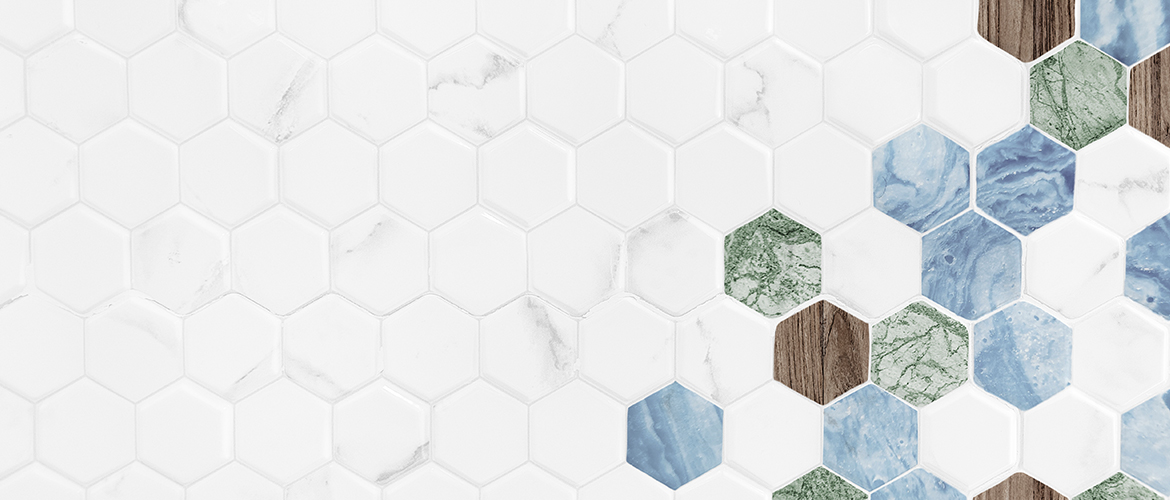Can Ceramic Tiles Withstand Heat?
As the no.1 tiles manufacturers in India, at Decorcera we often receive tile-related questions from our dear customers. So, we thought, we’ll address some of the common queries in our weekly blog. In today’s blog, we will answer all your queries regarding ceramic tiles and their heat resistance.
So, can ceramic tiles withstand heat?
Yes, ceramic tiles are heat-resistant but that doesn’t mean they are heat proof. Available in a massive range of colours, designs and finishes, ceramic tiles are a great way to add a dash of colour and elegance to your interiors. Besides looking pretty, these tiles are quite functional too. They can withstand heat, making them a great choice for kitchen countertops and other heat-prone areas of your home. With that said, these tiles can get damaged if you don’t handle them the right way. Placing a hot pot right off the stove can damage it.
What are ceramic tiles?
Ceramic tiles are made by heating red or white clay in hot kilns. They are then glazed to achieve the desired colour and design. They look similar to porcelain tiles but softer and can be used on countertops, floors and walls.
Ceramic tiles are ideal for home usage as they can withstand the footfall in residences but cannot withstand the high traffic in commercial spaces.
Colours and Finishes: The biggest advantage of ceramic tiles is that they are available in endless array of colours and designs. Besides the colour, ceramic tiles also have multiple finishes to choose from:
- Shiny, glossy finish
- Subdued matte finish
- Subdued matte finish
For the best range of ceramic tiles in India, reach out to Decorcera the best ceramic tiles manufacturers in India. Get in touch with us for a free copy of our latest ceramic and porcelain tiles catalogue.
Ceramic Tiles & Heat FAQs
1. Up to which temperature can ceramic tile withstand?
Ceramic tiles can withstand temperatures in the range of 600◦C to 1600◦C.
2. Which tiles can withstand high temperatures?
When exposed to high temperatures, certain tiles like linoleum melt easily. On the other hand, both porcelain and ceramic tiles can withstand high temperatures and are ideal for kitchens.
3. Do ceramic tiles conduct heat?
Yes, both ceramic and porcelain are good conductors of heat. They can make your home feel warm during winters. Another benefit of ceramic and porcelain flooring is that they don’t contract or expand with the changes in temperature. Hence, they do not chip or crack easily, unlike other synthetic tiles.
4. At what temperature does ceramic tile crack?
Ceramic tiles can withstand very high temperatures up to 1600◦C. So, you don’t have to worry about these tiles cracking to the lower temperatures in your stove.
5. If ceramic tiles can withstand high temperatures why does it crack?
The problem with ceramic tiles isn’t the high temperatures in your kitchen. If the temperature rises slowly, then the tile can withstand high temperatures exceeding 1000◦C. However, it tends to crack when there is a thermal shock – sudden changes from hot to cold. For example, placing a scorching hot pan takes the tile quickly for cold to hot, making it prone to cracking and chipping.
6. Is ceramic tile fire-proof?
It is fire-resistant, meaning it doesn’t catch fire easily. Hence, it’s ideal for indoors, especially kitchens, as they do not catch fire easily.
7. Which is more heat-resistant: porcelain or ceramic?
The clays used in the manufacture of porcelain tiles are denser than the clay used in ceramic tiles. This makes porcelain more porous, hence they do not attract moisture easily. As a result, porcelain is more heat-resistant than ceramic. With that said, ceramic can equally withstand the high temperatures in domestic kitchens without any issues.
8. Is it possible to differentiate between ceramic and porcelain tiles?
Yes. To differentiate between ceramic and porcelain tiles with the naked eye, you need to look at the sides. If the sides are tan, white or red, then it’s an indicator that the tile is ceramic. You can also examine the finish. If it’s super smooth, then it’s mostly porcelain.
9. How can I prevent cracks in the ceramic tiles in my kitchen?
Ceramic tiles can easily withstand high heat. But, they are more likely to crack when the temperature changes suddenly. Here are some tips to avoid cracks in your ceramic countertops:
- Do not place hot pots or pans directly on the countertop.
- Use heat pads or trivets when placing hot pans and pots on the countertop.
10. Will ceramic tiles undergo colour changes due to heat?
While ceramic tiles do not show any discolouration due to high heat, sudden temperature changes from hot to cold and vice versa can cause discolouration. To avoid this, consider using a grout sealer. Seal grout on your new ceramic kitchen countertop. Let it rest for a week. Sealing helps to reduce the damages caused by sudden temperature changes. If you notice any chipping on the tile, you will have to regrout it. Regrouting helps to protect your ceramic tiles, keeping it free of discolouration and chipping.
We hope this answers all your questions on ceramic tiles and heat-resistance. If you have any further queries, give us a ring at +91 82856 44444. As the best tiles manufacturers in India, we have a huge collection of ceramic and porcelain tiles in a variety of colours and designs. Get in touch with us to find the perfect tiles for your walls, floors and countertops.Download our Catalogue and choose from an extensive range of tiles.






